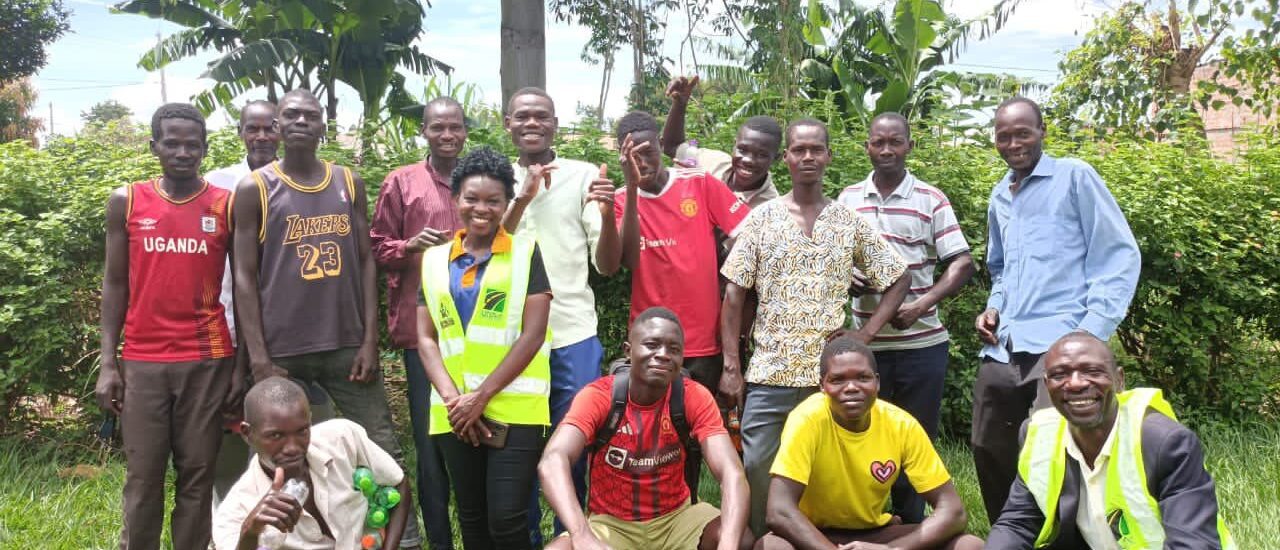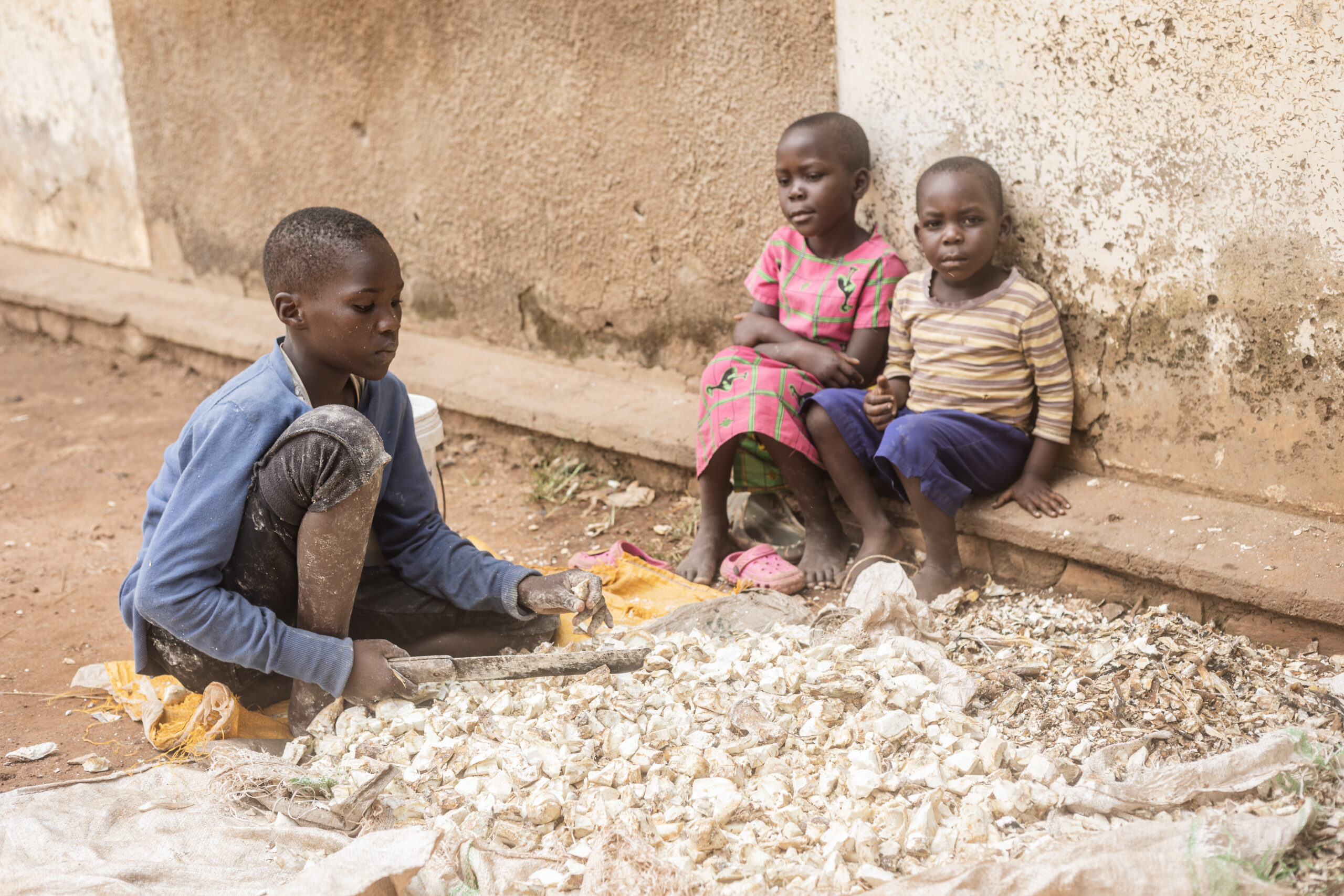Gender Based Violence (GBV) is perceived as one of the complex social phenomenon especially given the social structures and processes that reinforce its occurrence. In its complexity, GBV not only occurs amongst intimate relationships, but it can occur in families, communities and workplaces.
Gender-based violence (GBV) is an everyday threat for Ugandan women and girls. National demographic data from 2020 reveal that 56% of married women aged 15-49 reported having suffered physical and/or sexual violence by a husband (Uganda Bureau of Statistics, 2021). More than one in three women (36%) had experienced sexual violence, most often from a partner; 28% reported victimization by sexual violence in the past year. Child sexual abuse is also pervasive, with 59% of women reporting sexual abuse in childhood. National data also show that 33% of girls below the age of 15 years were forced at first sex. Among women who said they had experienced GBV, only a minority reported it to police.
According to the 2022 annual police crime report, a total of 17,698 cases of Domestic Violence were reported to Police in 2022 compared to 17,533 cases reported in 2021 thus giving a 0.94% increase in the volume of Domestic Violence registered. . A total of 18,549 people were victims of Domestic Violence, of whom 3,728 were Male Adults, 13,052 were Female Adults and 819 were Male Juveniles while 950 were Female Juveniles.
The prevalence, complexity and the social acceptance of Gender Based Violence (GBV) have generated the recognition that the prevention and response to GBV requires broad community participation and particularly the participation of men and boys.
There are increasing efforts to mobilize the support of men and the boys in prevention and response to GBV in Uganda. However, these have not deliberately sought to harmonize the different roles of men as duty bearers, perpetrators, and victims/survivors of GBV. Involving men and boys directly in processes that prevent and/or respond to GBV is an indispensable part of the process of changing the power dynamics of existing gender roles, norms and values that perpetuate GBV.
Men are prioritized in prevention and response to GBV because;
- Men have power in society as household heads, community traditional, cultural and religious leaders. Men hold majority of decision making positions in public and private sector, and wield overwhelming political power, including the media. Men’s power over women in many contexts necessitates working with men to change men’s domination into constructive power with other community members to improve the conditions of women’s lives.
- Men play a key role in bringing about gender equality since, in most societies, men exercise preponderant power in nearly every sphere of life, ranging from personal decisions regarding the size of families to the policy and program decisions taken at all levels of government.
- When men in positions of leadership speak on issues of gender, they are listened to because of the influence they hold in constituencies they lead.
- Uganda has diverse cultures, customs and taboos that define men’s status and expectations in different ways. Some of the cultural expectations around real manhood entail practices that not only promote violence against women and men but are also detrimental to men’s health. Such traditional beliefs and values include promotion of aggression, alcohol drinking, smoking, risk taking, sexual prowess characterized by multiple sexual partners among others.
- Men control resources at different levels – household, community and national level. Strategic partnership between women and men ensures that men do not become obstacles to development because they provide access to valuable resources; participation in joint decision making and because they are custodians of cultural norms and values.
- The maintenance of an unequal gender order in societies is likely to have negative consequences or costs for men as well as women e.g. suppression of emotions in order to stay “in control”; the absence of nurturing relations with children; exposure to many health risks; narrowing of educational opportunities; and damage in interpersonal relations with women. These are detrimental to men and women.
- Targeting male children and youth is critical to build a future generation that does not subscribe to male dominance, but promotes partnership and mutual coexistence
In order for Uganda to achieve its economic, social and development goals such as the SDGs 2030, individuals, government and civil society need to build a more gender equitable society with healthier gender roles for women and men. To be effective, strategies must not only empower women, but also should engage men and bring about significant changes in men’s attitudes and practices which are often discouraged by negative notions of masculinity It is common among many communities for women and children to be subjected to gender-based violence and other forms of violence which include, harassment and harmful traditional practices.
JFCU engages men and boys through a community-based approach in order to challenge and change the social norms and attitudes that cause and perpetuate violence.
Children’s behaviour is partly shaped by the type of upbringing obtained at home, regardless of it being good or bad and the same is transferred to the next generation. It is therefore important , for men and boys to know and practice their roles as fathers in the upbringing of their children. To achieve this, JFCU has trained men in parenting for respectability modules (bonding and attachment, discipline, gender, spousal relationship and father involvement), which has Improved parenting skills and practices as well as spousal relationship that enables children and adolescents to grow and develop
Gender imbalance brings a lot of conflicts at family level which often brings about GBV – and children and women suffer the most. JFCU conducts awareness sessions for men and boys on the effects of violence on children and women. Men and boys are also informed about various non-violence mechanisms of resolving conflicts. The knowledge has equipped the beneficiaries with knowledge on how violence against women and children affects the welfare of families. Men and boy have vowed to become champions of ending violence in the community.
What more needs to be done
- Male engagement in addressing GBV is relatively new, and most efforts to engage boys and men in ending violence.
- Legislative efforts or evidence-based policies are needed that would encourage men’s involvement in the primary prevention of GBV
- Male engagement requires multi-sectoral coordination guided by clear policies and strategies. male engagement should be part of an ongoing, comprehensive package of policies, programs, and services addressing underlying causes of violence with all members of the community. This should be undertaken in addition to providing critical support for survivors of GBV.
- Engaging males in this effort should begin at an early age, before they observe and/or exhibit violent behavior. Boys’ education on this topic at school age is essential in order to create a safe environment for girls, while also enabling male students to develop positive masculinity attitudes that they will be able to carry into their adult lives.






